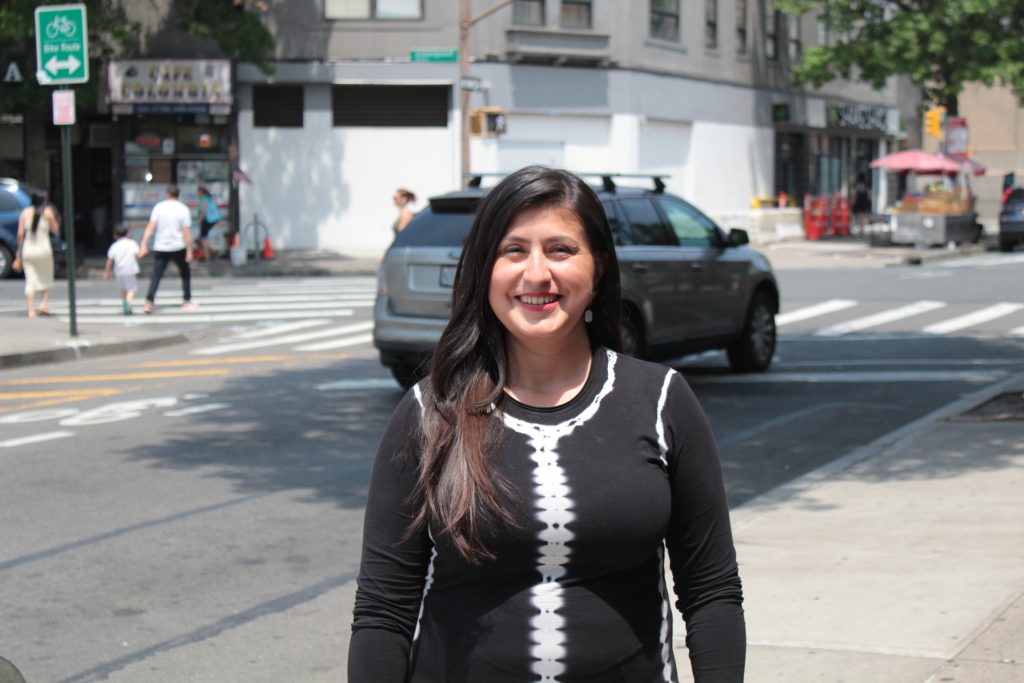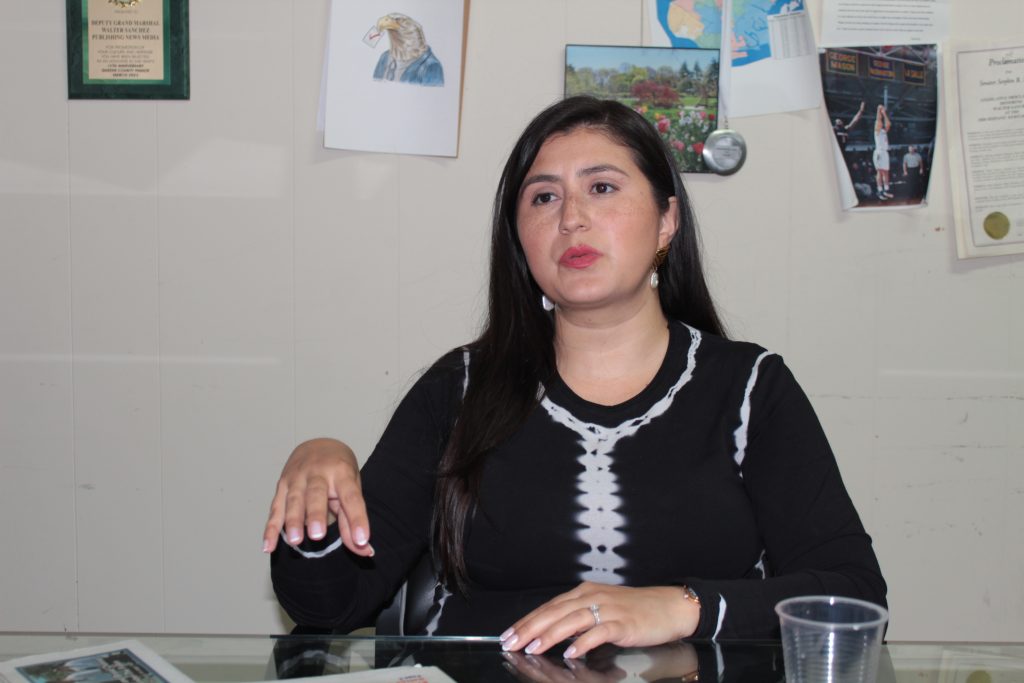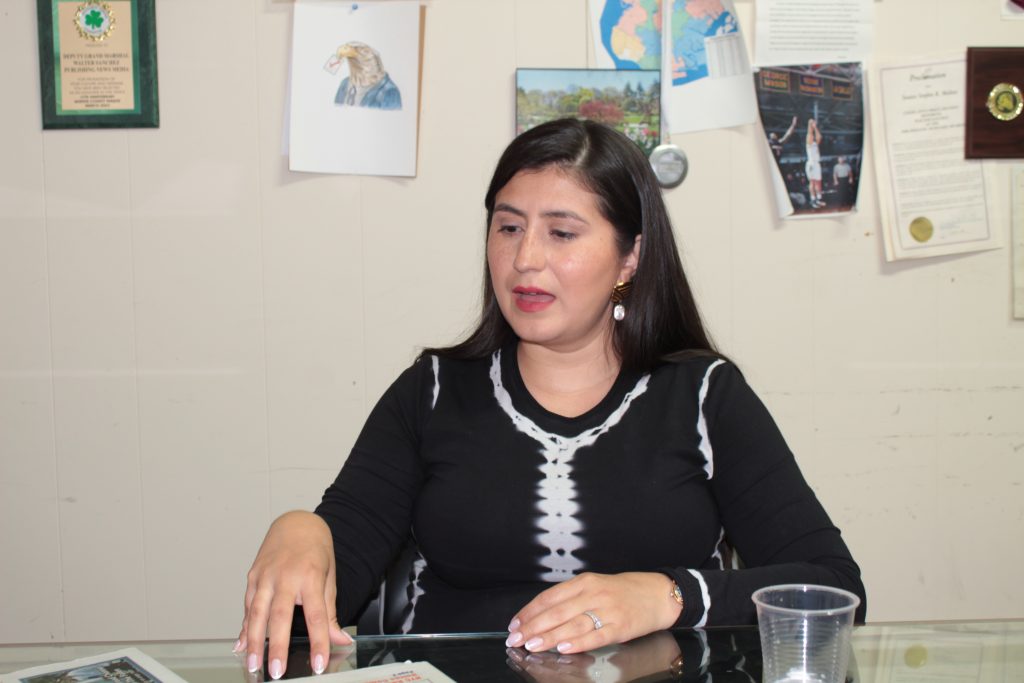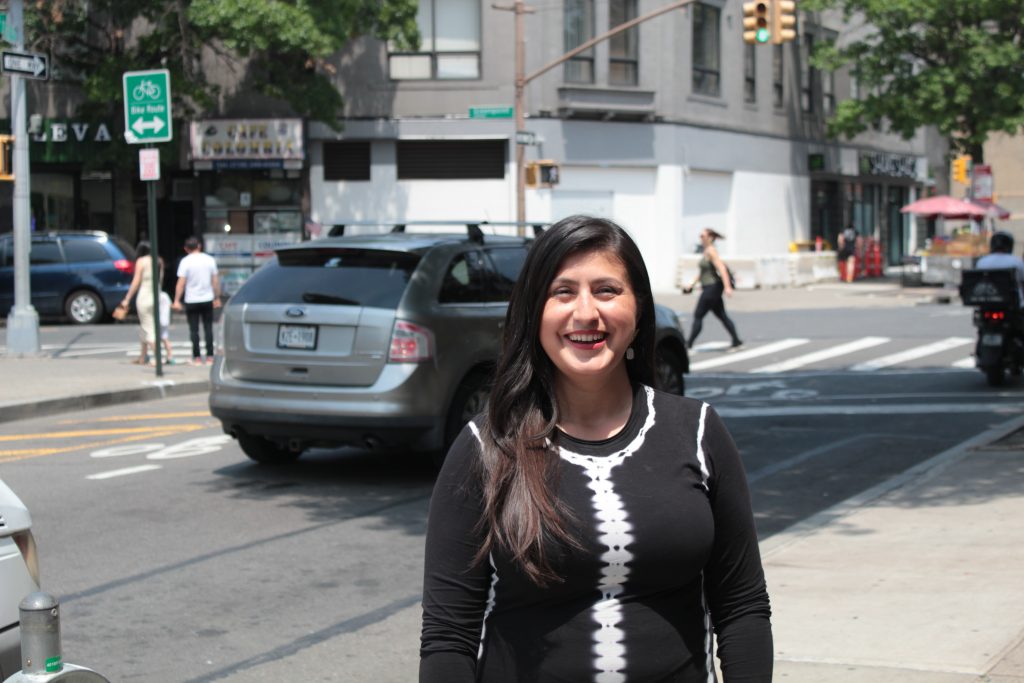
MOHAMED FARGHALY
mfarghaly@queensledger.com
One afternoon near Elmhurst Hospital, Jessica Ramos spotted a woman selling churros on the street corner — a former nurse from her home country, now trying to make ends meet far from the life she once knew. This moment crystallizes the urgency that drives Ramos’ mayoral campaign: fighting for immigrant economic opportunities, affordable child care, and a city that works for everyone, not just the well-connected.
As New Yorkers prepare to vote in the June 24 mayoral primary, New York State Senator, Jessica Ramos is mounting a campaign grounded in her lived experience as a daughter of immigrants and a long career in city government. Ramos is focusing on a platform that addresses the intertwined crises the city is plagued with — all wrapped in a call for practical governance and proven legislative results.
Born and raised in Queens, Ramos has deep roots in the city she hopes to lead. “My first job was at a law firm in Roosevelt Avenue. I’ve worked on rezoning all over the city. I know this city inside and out.”
“Given my legislative record and the fact I’ve had a desk at the mayor’s office and on city council, I have the most well-rounded perspective as a mayoral candidate compared to the others,” Ramos said of her campaign during a roundtable with the Queens Ledger.
Readers should be aware that the day following our conversation with Ramos, she formally backed Andrew Cuomo as the future mayor of New York City. Ramos said she will continue to run and be on the ballot so she can continue to speak out in support of her issues. Ramos acknowledges that she won’t win the primary election with the endorsement but we still wanted to inform our readers about her campaign and platform.

Ramos places childcare at the forefront of her agenda, mentioning how it has become “so damn expensive it’s like college tuition now.” She wants to reform access to child care vouchers, noting the new state budget requires New York City to increase these vouchers but acknowledges that “the city has a very big challenge when it comes to funding these programs” because it cannot levy its own taxes. Ramos’ goal is to expand eligibility from 200 to 400 percent of the poverty line to at least 500 percent, a level that would cover more than 90 percent of New York families.
She also advocates for streamlining access to services, calling for an update to the city’s 311 app. “I think the 311 app can be updated and it should be the central place where everyone can go for any and all city services. We shouldn’t have 5+ apps. Everything should be a one stop shop.”
Queens, often called the modern-day Ellis Island, is a vibrant gateway for immigrants, and Jessica Ramos has proudly represented its diverse communities. As mayor, she plans to expand affordable housing through programs like the Housing Access Voucher Program, strengthen funding for immigration legal services, and improve language access across city services. Ramos also aims to boost workforce development with adult literacy and job training, while advocating for federal reforms to speed up work authorizations, ensuring newcomers can thrive and contribute to New York City’s economy.
A strong voice for immigrant rights, Ramos frames immigrant work permits as an essential “entry point to the economy.” She warns, “If you don’t offer them an entry into the economy, someone else will. Those people are usually bad actors.” While she laments that “case law prevents us from creating a NYC work permit,” she insists, “I think the mayor of NYC should be the loudest voice in DC for work permits… We should at least allow and believe a person’s right to self-determination.”
On the issue of sex workers, particularly on Roosevelt Avenue, Ramos criticizes current enforcement as ineffective and unfair. “Mayor Adams wants to tout over a thousand arrests for Roosevelt Ave, just women not the traffickers or pimps, it’s unserious,” she said. These women are not being provided alternative employment options, she said, leaving them trapped. Ramos proposes better job pathways, education, and certification, leveraging institutions like CUNY to accelerate English learning and professional integration.
“I think Eric Adams bungled the migrant influx from the very moment those people stepped off the buses,” she said, referring to buses sent by Texas Governor Abbott. “The minute they get off the bus, I as mayor have the option to use the sanctuary law as a shield or a sword.”
Ramos sees housing as a foundational element to improving public safety: “As soon as we’re able to get a roof over someone’s head, the safer we can all be.” She is calling for expansion of low-income and supportive housing units, along with more mental health resources, arguing that “I resent that we have to wait for someone to get hurt to get the help that they need.”
Addressing the costly and ineffective incarceration of mentally ill individuals, she said, “For a cheaper price to the taxpayer, we can expand psychiatric beds at hospitals and talk about the people who can’t be on the streets right now because they’re a threat to themselves or someone else.” She advocates for closing Rikers Island and opening smaller jails in each borough but acknowledged that this goal may not be realized until after 2030.
Ramos also criticized the lack of outreach to minority communities in politics. “We only really talk about politics in English, so we need to do a better job sharing institutional knowledge and local history with people in their native language… There’s also apathy and great skepticism.”
She stresses the importance of engaging ethnic and community media, noting low voter turnout is partially due to information barriers. “We are such a diverse borough we need to be more accommodating to help people understand why things are the way they are in their neighborhood.”
On development, Ramos is firmly against the proposed Metropolitan Park City Field casino. “These jobs do not create generational wealth,” she said, emphasizing the need for union jobs with safety and living wages. “Most unemployed people in my district are undocumented and cannot have those jobs. It’s not anti-development, it’s anti-casino”
If elected, Ramos said her legacy would include infrastructure upgrades critical to climate resiliency, “Replace the sewers and waste system… the skeleton underground that supports all that in an era of climate change with sewage backup and flooding.”
Ramos also said that on day one as mayor, she would declare a mental health emergency to unlock more funding to rapidly expand mental health facilities, aiming to end chronic homelessness and better support those struggling with severe mental illness by the end of her term.
As voters weigh their choices, Ramos’ message is clear: “I don’t just fight, I win.”




